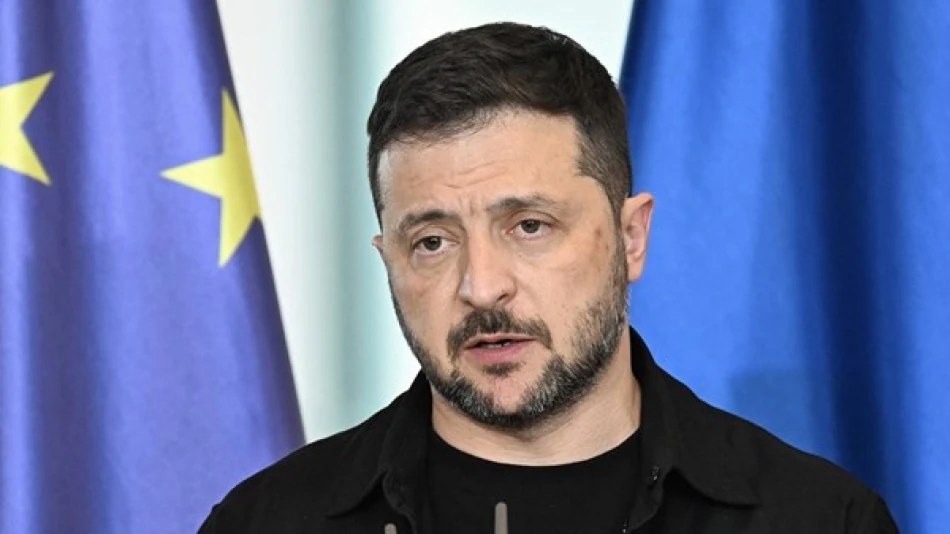
Zelensky Announces High-Stakes Meeting with Trump in Washington
Zelensky Rushes to Washington as Trump-Putin Alaska Summit Fails to Deliver Ceasefire
Ukrainian President Volodymyr Zelensky will meet Donald Trump in Washington on Monday to discuss ending the war with Russia, following a phone call where Trump briefed him on his recent summit with Vladimir Putin in Alaska. The hastily arranged meeting signals Ukraine's urgency to stay central to peace negotiations after the Trump-Putin talks yielded no immediate ceasefire announcement.
Ukraine Seeks Direct Role in Peace Process
Zelensky's announcement came after what he described as a "lengthy and substantive" phone conversation with Trump, which began as a bilateral discussion before European leaders joined the call. The Ukrainian president expressed gratitude for Trump's invitation and emphasized his readiness for a three-way meeting format that would include Putin—a proposal Kyiv has long advocated but the Kremlin has consistently rejected.
"Ukraine affirms that fundamental issues can be discussed at the presidential level," Zelensky stated, describing the trilateral format as "appropriate" for such discussions. This represents Ukraine's continued push to avoid being sidelined in negotiations about its own territory and future.
Strategic Timing After Failed Alaska Summit
The Washington meeting comes just three days after Trump and Putin held talks in Alaska that failed to produce a ceasefire agreement. This timing is crucial for Ukraine, as it allows Zelensky to present his country's position immediately after the bilateral superpower discussions, rather than being relegated to receiving secondhand updates.
The rapid diplomatic sequence—Alaska summit followed by Washington talks—mirrors historical patterns where smaller nations have had to actively insert themselves into great power negotiations to protect their interests. Ukraine's proactive approach contrasts sharply with past conflicts where affected countries were presented with fait accompli agreements.
European Involvement Signals Broader Alliance Strategy
Zelensky's call for European leaders to engage in "every stage" of the negotiations reflects Ukraine's strategy to build a coalition that extends beyond bilateral US-Russia discussions. By involving European leaders in his phone call with Trump, Ukraine is working to ensure that NATO allies and EU partners remain invested in the outcome rather than simply accepting whatever Washington and Moscow might agree upon.
This multilateral approach could complicate Trump's apparent preference for direct bilateral negotiations with Putin, potentially forcing the US president to balance competing allied interests while pursuing his stated goal of ending the conflict quickly.
High Stakes for Ukraine's Sovereignty
The Monday meeting represents a critical moment for Ukraine's ability to shape its own future. With Trump having campaigned on ending the war rapidly and Putin holding significant territorial gains, Zelensky faces the challenge of ensuring that any peace agreement doesn't simply ratify Russian conquests or compromise Ukrainian sovereignty.
The Ukrainian president's emphasis on discussing "all details related to ending the war" suggests he intends to present comprehensive Ukrainian positions rather than simply responding to a US-Russia framework. This proactive stance could determine whether Ukraine emerges as an active participant in shaping peace terms or finds itself pressured to accept externally negotiated conditions.
Most Viewed News

 Layla Al Mansoori
Layla Al Mansoori






